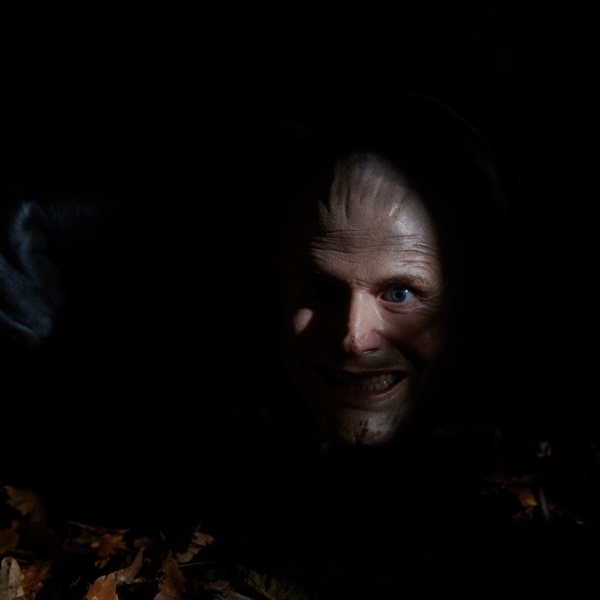‘Contagion’ & ‘Drive’ Composer Talks Working With Soderbergh, Nicolas Winding Refn & Possibly Working On ‘Only God Forgives’

When we last sat down with composer Cliff Martinez, the Matthew McConaughey-starring “Lincoln Lawyer” was his last work, and the film, and score, were both warmly received. Mr. Martinez, familiar to fans of Steven Soderbergh for scoring several outstanding films in the director’s filmography, including his standout score for “Solaris“, was generous enough to sit down with us again – with two very well received films now in theaters (Soderbergh’s “Contagion” and Nicolas Winding Refn‘s “Drive“), we talked about his first foray into composing, meeting Soderbergh, and just what is going with Refn’s project “Only God Forgives.”
1. His first composing gig was doing music for “Pee Wee’s Playhouse“, the TV show.
Already fascinated with music technology in the early 80s, former Red Hot Chilli Peppers drummer Martinez’s brush with what would become a cornerstone of his composing career was seemingly fated. “I was recording the first Chili Peppers album and the producer, Andy Gill, walked into the room with a Lynn drum machine and he said ‘Cliff, why don’t you check this out, maybe you’d like to program a few beats,’” says Martinez. “And I felt like I was holding in my hands the device that was going to replace me and all drummers, and from that moment I was turning into a dinosaur and I had to evolve or die.”
This evolution would lead to his first composer gig, doing music for an episode of “Pee-wee’s Playhouse“. “I started writing a bunch of early, weird music and I didn’t think the band would be an appropriate output. And I was surfing channels and I came across “Pee-wee’s Playhouse” and it was really experimental music, as was the show. And I happened to know the director of the show at the time, so I called him up and asked him if I could do a show and I did, I got to score one episode of Pee-wee’s Playhouse and that was my introduction to scoring,” Martinez said, adding “and it was kind of the weirdest music I’ve ever written and it was also the most fun – you know, it was a lot of fun, the money wasn’t too bad and I just got smitten with the whole idea of writing music to picture. And that’s how it began and then I met Steven Soderbergh and I was off and running, sort of.”

2. His 22-year partnership with Steven Soderbergh started because of a happy accident.
Asked whether his partnership with Soderbergh was his longest professional relationship, Martinez said, laughing, “I don’t have anything that comes to close to a 22-year relationship with anybody, not even my family.” He elaborated on their first meeting, while “I was making a lot of weird sound collage stuff and one of my tapes made its way into a post production facility a good friend of mine worked at. And he invited me to collaborate on some kind of, sort of semi sound design semi musical material for the film “Alien Nation“. While I was there working, my friend Mark Mangini who ran the studio, had a roommate and that roommate was Steven Soderbergh, who just happened to walk in one day, and came in, sat down and started making suggestions about the music before we were properly introduced.” Martinez took well to the young director, “I could tell he wasn’t a musician but he had great instincts about music and picture. After that initial meeting, he said ‘I’m working on my first film and I think what you’re doing here would be perfect, I’d love to have you score it.’”
3. Soderbergh typically utilizes temp scores to guide Martinez – the temp score for “Contagion” went from “The French Connection” and “Marathon Man” to selections from Tangerine Dream‘s discography to rhythmic contemporary music.
“Steven is always directed me by way of primarily through temp scores,” Martinez, adding “that has been the biggest tool for communicating the direction he wants the music to go in. So that hasn’t really changed much, there have been a few films where there wasn’t a temp score, but there was one for “Sex, Lies, and Videotape” and there was one for “Contagion.””
The temp score for “Contagion” went through several changes courtesy of Soderbergh while Martinez worked – “Initially [Soderbergh] just said, ‘This is a horror film, the music is going to be scary.’ And he sent me a rough cut that had “The French Connection” and “Marathon Man” cut into it. And the tracks that he chose were really pretty dissonant, scary pieces – so that was kind of the first important piece of direction. A few months later, he threw that out and he gave me a temp score with Tangerine Dream in it. In the last couple of months, he tossed that out and went with more contemporary music, stuff that was more energetic and more rhythmic,” said Martinez, adding that it was indicative of Soderbergh’s style, while “my contribution, my instincts about where to go just came from the idea of combining all three of those temp things, I thought it just became more interesting – plus I had written a bunch of stuff during “The French Connection” era, during the Tangerine Dream era, that I was attached to and didn’t want to throw out. All these were combined into a retro-modern hybrid and that was the kind of style that was made the “Contagion” score interesting for me.”
4. His favorite scores of his own are “Solaris,” followed by “King of the Hill.“
Asked to name several favorites of his own vast output, Martinez said, “Probably “Solaris” in first place and “King of the Hill” is in close second,” adding with a bit of a laugh, “usually I get pretty sick of my own music because I’ve heard it a zillion times and I don’t like to listen to it after its done, but those two scores for some reason – and music is peculiar in that, I never watch a movie ten times but good music you can listen to over and over and it still entertains you and holds your interests.” He then elaborated on why he felt those scores stood out. “Those two scores are about the only ones that hold up under repeated listening. “Solaris” was probably my first gigantic orchestral score, I felt I did something a little bit unusual and it succeeded and “King of the Hill” was unique in Steven’s films, the first one where the music was allowed to be broadly emotional – and the first time I tried to fake the sound of an orchestra with samplers.” In fact, “King of the Hill” holds a special meaning for Martinez. “I just saw it the other night, on the big screen,” he said, adding with conviction, “and I thought that was the best thing I’ve ever done.”
5. He has gotten the script for Refn’s “Only God Forgives” but hasn’t confirmed whether he’s on board.
With his work for “Drive” one of the better reviewed and best selling scores of the year, we asked Martinez whether Refn had hoped to retain him for his next possible project, the very interesting-sounding “Only God Forgives,” which follows Julian, an American expat running a Thai boxing club as a front for a drug smuggling operation, who vows vengeance against a former Thai cop turned underworld leader nicknamed The Angel of Vengeance. Martinez said, “[Refn] sent me a script, I’m keeping my fingers crossed that I’m going to do it, the script looks terrific. I totally look forward to whatever Nicholas does next. I would hope to follow that guy wherever he goes, I think he’s just born to make films, so I would love to work on “Only God Forgives.”





